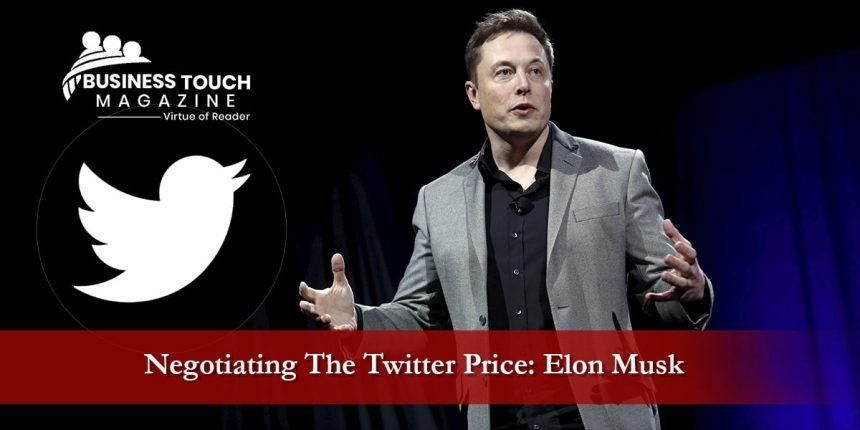The wealthiest guy in the world is not renowned for austerity. SpaceX, The Boring Company, Neuralink, Starlink, OpenAI, and Tesla, to name a few, are all “moonshots” started or led by Elon Musk. These companies are predicated on outlandish concepts that border on the ridiculous. Since Musk is heading on the other route with Twitter, it is intriguing. It seems that he will put the sale on wait until an inquiry into the number of bogus accounts on the site is completed.
Given that he paid a staggering $44 billion for it in April, this level of due diligence was unexpectedly tardy. After all, he does not want to change social media as we know it; he wants to transform it into a moneymaking engine.
On Monday, Elon Musk, who has been publicly feuding with Twitter Inc. CEO Parag Agrawal over spam accounts, is said to have indicated that a lower price for Twitter Inc. may not be “out of the question.”. His $44 billion bid was placed on hold over spam users only last week, causing another more uncertainty for one of the most keenly watched tech takeovers in recent years.
According to a Bloomberg story, the world’s wealthiest person continued his argument: “Currently, I am being told there is simply no way to determine the number of bots. “It is as enigmatic as the human soul,” he says. More than a quarter of Americans utilise these services, and some estimates put that percentage as high as 90 per cent, citing a variety of sources. According to reports, the conference was not open to the media, but a live stream from the event was purportedly uploaded on social media by one of the guests.
Because of the uncertainty around the acquisition, Twitter’s CEO has been more engaged than ever. A post titled “Let us speak about spam” was launched by the 37-year-old man on Monday. Moreover, let us accomplish it with the help of data, facts, and context…”
Twitter has millions of fake accounts being created every day. “We also freeze millions of accounts every week that we fear may be spam – if they cannot pass human verification tests (captchas, phone verification, etc.).”
That several accounts that seem fake on the surface are, in fact, actual people is a tricky problem.” And some of the spam accounts that are really the most dangerous—and inflict the most significant damage to our users—can seem entirely legal on the surface,” he said.
“Our actual internal forecasts over the past four quarters were all far under 5% – based on the technique stated above.” However, the lengthy Twitter conversation elicited replies from none other than Tesla CEO Elon Musk. Advertisers may wonder, “How do consumers know what they are paying for?” For Twitter’s financial health, he said in response to a tweet. To another, he just replied with a faeces emoji.
At the conclusion of trading on Monday, Twitter’s shares were down a little more than 8% at $37.39. On April 14, Tesla CEO Elon Musk offered $54.20 per share for the world’s most extensive social network.




